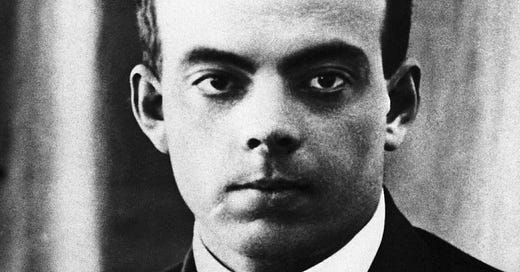Leadership in the Land of Tears
I did not know how to reach him, how to catch up with him… the land of tears is so mysterious. -Antoine de Saint-Exupery
Most major bookstores will have a section devoted to leadership. Perhaps you have seen them? Dominating the shelves are books filled with well-intentioned how-to advice that is difficult to distinguish from the platitudes and bromides that fill its neighbors. Probably never will you find the French author Antoine de Saint-Exupery’s pamphlet length book titled The Little Prince on the shelves devoted to leadership, but he offers an insight we desperately need in order to mitigate the hollowness in our understanding and practice of leadership.
The quote from The Little Prince above describes a fictional meeting between a space travelling little boy—apparently a prince—and the author. The Little Prince, visiting earth from an asteroid, has explained that he is afraid for his flower—a rose—that grows on Asteroid B-612. One is never certain that an untended flower will not be eaten by a hungry celestial sheep, and realizing just that possibility has brought the Little Prince to tears. Antoine de Saint-Exupery struggles to console his small companion in this difficulty. But as he puts it, he is unable “to catch up with him.”
What Makes a Leader?
Antoine is an older man, a pilot on a mission gone wrong, who finds himself stranded in the desert with a broken airplane and a young prince who has just dropped in from outer space. Antoine needs to fix his engine but is likely to die of dehydration before he can. In the meantime, the Little Prince is crying on account of the sheep and flower situation. Perhaps inexplicably, Antoine assumes responsibility for his young visitor’s tears although he is not certain what to do about them.
You see, Antoine is a leader. He is confronted with two problems: a malfunctioning engine; and a sheep/flower/tears situation. Generally, engines can be fixed; a mal functioning thing can be made to function properly; one exerts one’s will upon the malfunctioning object and, with a little luck and know-how, the thing functions. Whereas, for Antoine to attempt to impose his will on the Little Prince as if he were an engine to be fixed would be worse than useless. No. What to do about the possibility of hungry celestial sheep is the real challenge. Antoine chooses the more difficult mission—to attempt consoling the Little Prince, and it is more difficult because the Prince is not malfunctioning; he is suffering.
Suffering and Responsibility
Antoine is a leader because, while suffering and in danger himself, he assumes the burden of the Prince’s suffering. He accepts the responsibility of pursuing the Little Prince into the mysterious “land of tears” in order to recover him. Sometimes a leader will blaze a trail for his followers; sometimes he will discipline them; but always he is responsible for them—always he is trying to catch up to them. A leader is never one who simply exercises his will over his subordinates. Instead, he makes himself responsible for their wills; he suffers the consequences of their actions; he joins them in their suffering because only when leader and follower are together in the “land of tears” can one lead the other out. In fact, the Incarnation provides the first and final word on the matter: in the Incarnation, Christ the leader assumes humanity in order to lead His people to salvation. The word educate preserves this fundamental truth about leadership: to educate (from the Latin prefix ‘e’ meaning “out” and ‘ducere’ “to lead”) is to lead someone out.
There is no leadership without an acknowledgement of this responsibility to pursue the other in all his subjectivity and suffering regardless of the circumstances and consequences. Christianity’s central theme is the conflation of these apparent opposites: to pursue and to lead—as in the Exodus where God leads His people out of Egypt; or the Incarnation when He pursues and catches us in our human suffering. The archetypal model of the leader is One who has pursued us into our cosmological vale of tears; who pierced history in order to be pierced by history; who made each of us “unique in all the world” by catching and joining us in our suffering, and who assumed responsibility for all that suffering in the crucifixion.
Leadership is Not Safe
To choose responsibility is to choose leadership, and leadership is rarely a safe or easy choice. How often do good works falter for lack of strong and willing leaders?—for lack of those willing to assume responsibility and all the risk it implies? How often do families falter for lack of fathers who embrace their role as leaders and the sacrifices of leadership? Responsibility makes one vulnerable in the way that Antoine becomes vulnerable to exposure and death in the desert for his little friend; or the way that Christ becomes vulnerable to human malady and malice through the Incarnation and the Eucharist. It is easiest and safest to remain incognito in one’s family, community, country, and church—easiest and safest to let one’s Little Prince sojourn alone in the land of tears. But as Saint-Exupery makes clear in his beautiful and profound little book, the burden of assuming responsibility for others, entailing suffering as it does, is one of the purest acts of love. It is this act of love that incites the pursuit of the beloved—this act of love that is leadership.
Suffering is a given in life—so why not lead a little?





